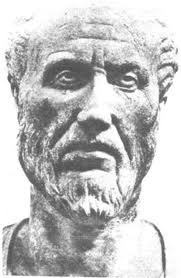 Plotinus had numerous transcendental experiences in his life. There’s no way to determine whether he was ascended or not. Jesus and Apollonius of Tyana (in my opinion) were.
Plotinus had numerous transcendental experiences in his life. There’s no way to determine whether he was ascended or not. Jesus and Apollonius of Tyana (in my opinion) were.
This passage has inspired me in my work since forever.
“Let him who can arise, withdraw into himself, forego all that is known by the eyes, turn aside forever from the bodily beauty that was once his joy. He must not hanker after the graceful shapes that appear in bodies, but know them for copies, for traceries, for shadows, and hasten away towards that which they bespeak. …
“Withdraw into yourself and look. … Do as does the sculptor of a statue that is to be beautified: he cuts away here, he smooths it there, he makes this line lighter, this other one purer, until he disengages beautiful lineaments in the marble. Do you this, too. Cut away all that is excessive. straighten all that is crooked, bring light to all that is overcast, labor to make all one radiance of beauty. Never cease “working at the statue” until there shines out upon you from it the divine sheen of virtue….
“Have you become like this? Do you see yourself, abiding within yourself, in pure solitude? Does nothing now remain to shatter that interior unity, nor anything cling to your authentic self? Are you entirely that sole true light which is not contained by space, not confined to any circumscribed form, not diffused as something without term, but ever immeasurable as something greater than all measure and something more than all quantity? Do you see yourself in this state? Then you have become vision itself.
“Be of good heart. Remaining here, you have ascended aloft. You need a guide no longer. Strain and see.” (Plotinus in Elmer O’Brien, ed., The Essential Plotinus. Representative Treatises from the Enneads. Toronto: New American Library, 1964, 40-3.)

